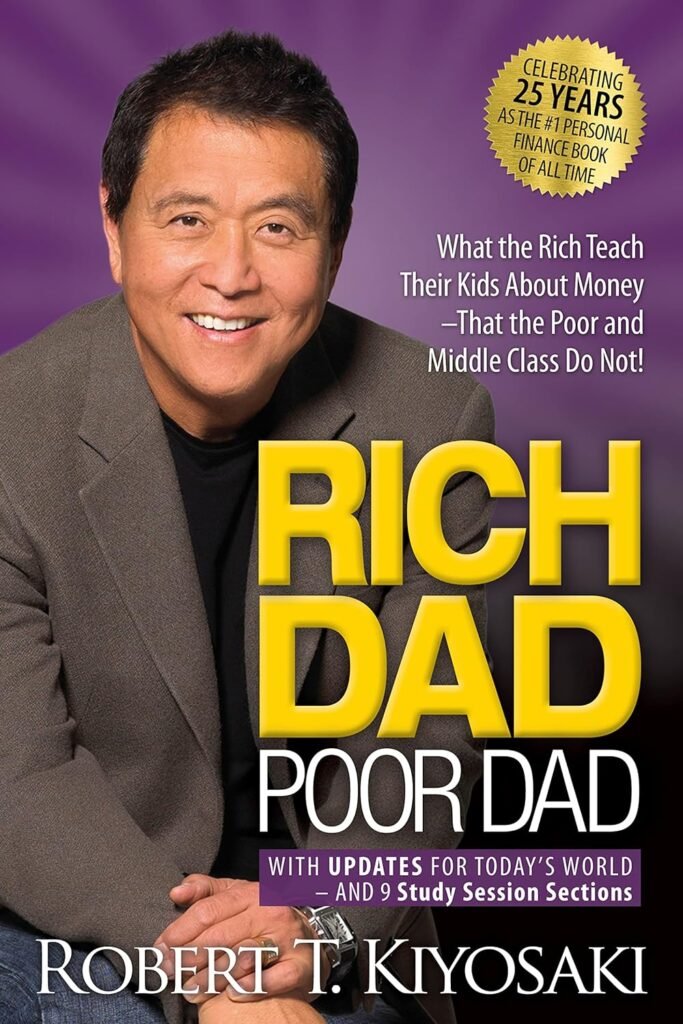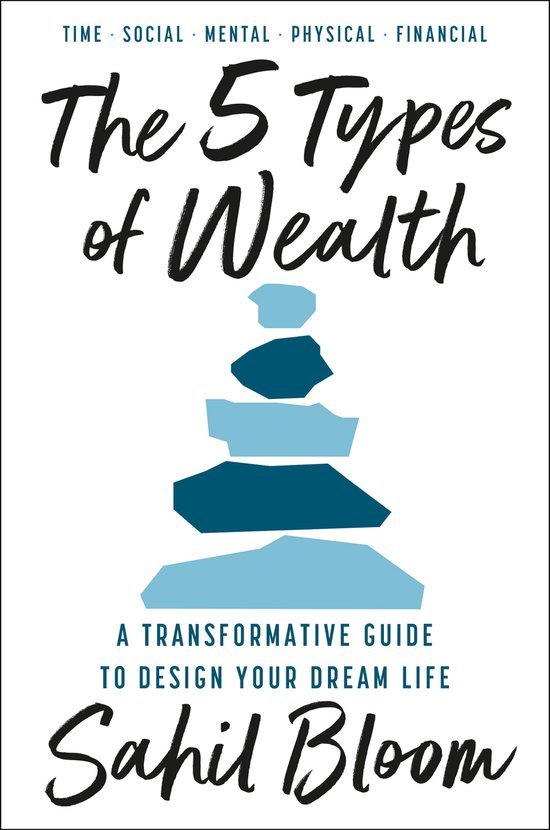
The 5 Types of Wealth explains that a good life is not only about money. Real wealth comes from balance in different parts of life.
The book describes five kinds of wealth:
Time wealth: having time for the things and people you care about.
Social wealth: strong relationships with family, friends, and community.
Mental wealth: learning, growing, and having a clear sense of purpose.
Physical wealth: good health, energy, and caring for your body.
Financial wealth: enough money to feel safe and free.
Sahil Bloom shows that when people focus on all five areas, they feel happier and more fulfilled. The book encourages readers to rethink success and choose what truly matters in everyday life.
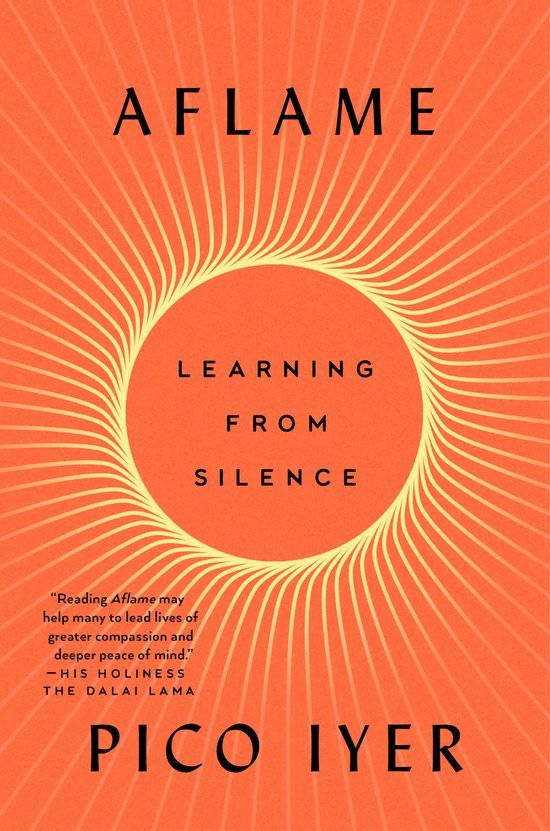
Aflame, is a personal about how quiet and stillness have helped Iyer in life. For many years, he spent time in a silent monastery in California. There, he learned to slow down and listen. In the book, Iyer explains that silence is not empty. It helps people see more clearly, feel calmer, and understand life better. He writes about difficult moments, like losing his home, losing a parent, and caring for a sick child, and how silence helped him stay strong. Even though he is not a monk, Iyer learns from the monks’ simple way of living. He shows that spending time alone can make us more caring, more present, and more connected to others. The book is about finding peace in a busy world and learning how silence can guide us through life.
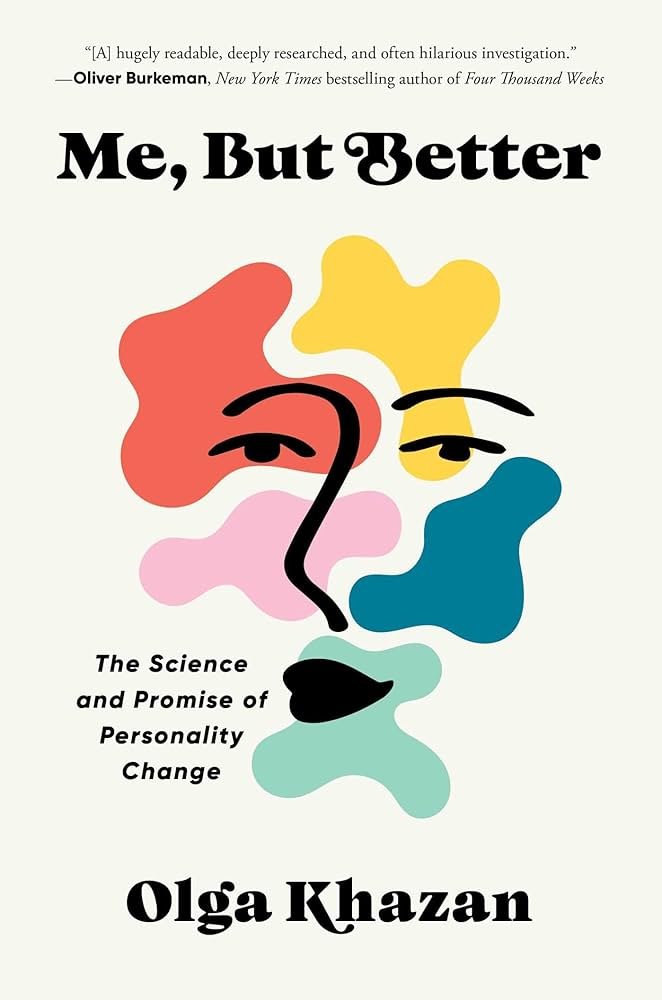
Me, But Better explores a big idea: your personality is not fixed — you can change it. Using scientific research and personal experience, Khazan shows that traits like confidence, calmness, openness, and discipline can all shift if you practice new habits over time. To prove this, she spends a year pushing herself to try new things that challenge her usual behavior. She takes classes, faces fears, builds new routines, and studies what psychologists call the “Big Five” personality traits. Her goal is to become a version of herself that feels stronger, calmer, and more in control. The book mixes research with real-life stories, showing that personality change is not quick or perfect — but it is possible. Even small actions, repeated over time, can slowly reshape how you think, feel, and respond to the world.
The message is encouraging: You don’t have to stay the way you are. With intention and practice, you can become the person you want to be.
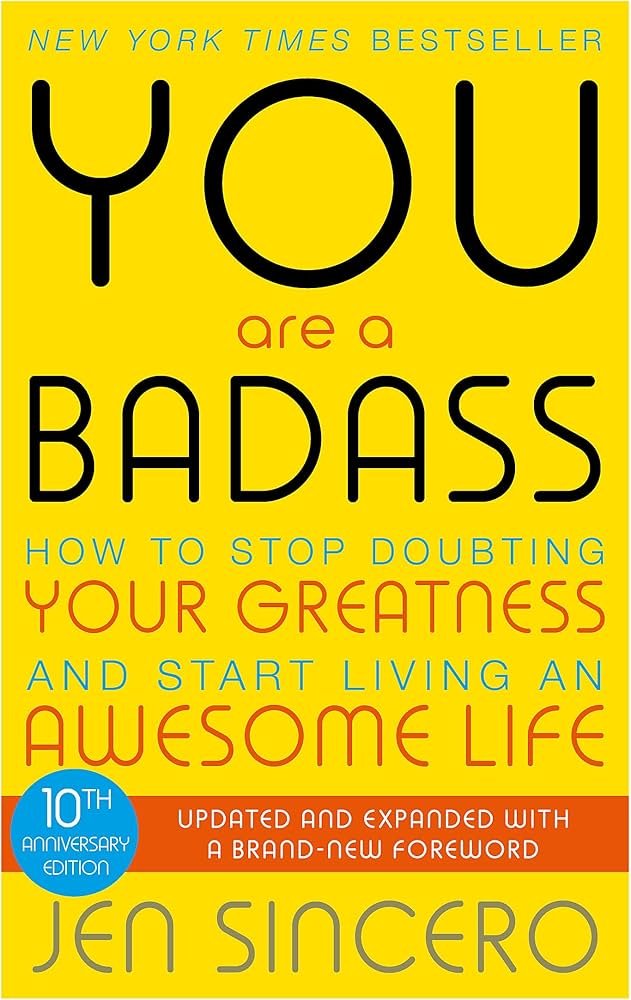
You Are a Badass is a motivational book that teaches you how to change your mindset, love yourself, and create a life you actually want. The author explains that many people limit themselves with old fears and negative beliefs. When you change those beliefs, your life starts to change too.
The book encourages you to:
Believe in yourself
Think more positively
Stop comparing yourself to others
Take bold action toward your goals
Step out of your comfort zone
Build a healthier relationship with money
Trust that good things can come your way
Sincero uses humor, personal stories, and simple advice to show that you are capable, powerful, and worthy of success. The main message is:
Stop doubting yourself and start acting like the badass you already are.
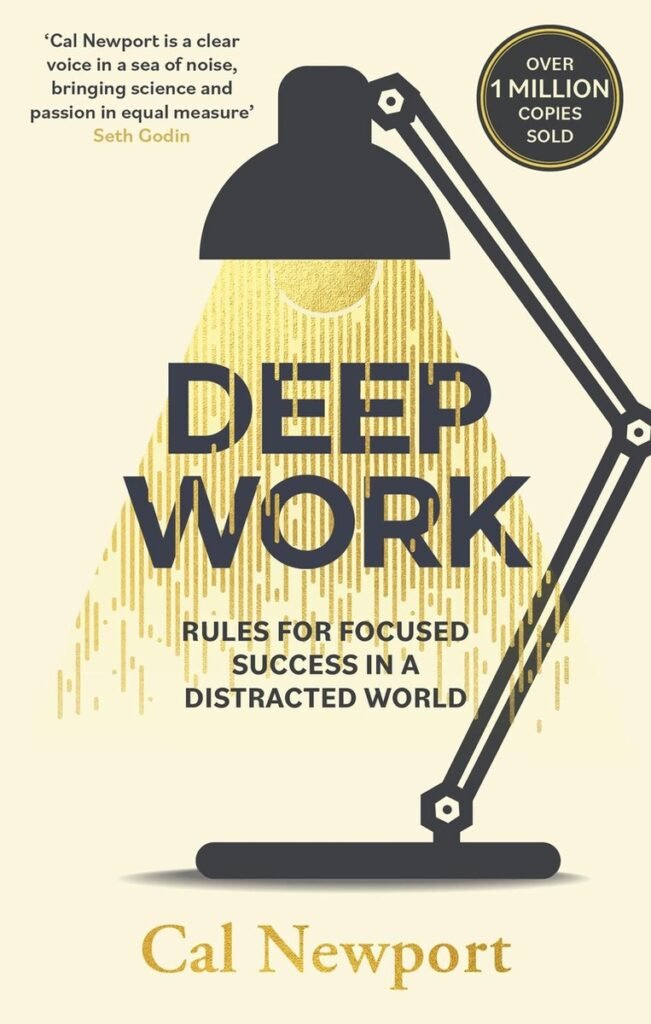
Deep Work by Cal Newport argues that the ability to focus without distraction is becoming rare and valuable in today’s world.
Deep work — intense, focused effort on meaningful tasks — allows you to learn faster, produce high-quality results, and find more satisfaction in your work.
Newport contrasts this with shallow work, like emails or meetings, which consumes time but adds little value.
He offers four key rules: work deeply by creating routines that encourage focus; embrace boredom instead of constant stimulation; quit or limit social media; and reduce shallow tasks by scheduling your time carefully.
By training your mind to concentrate and protect your attention, you gain a powerful edge in both career and life.
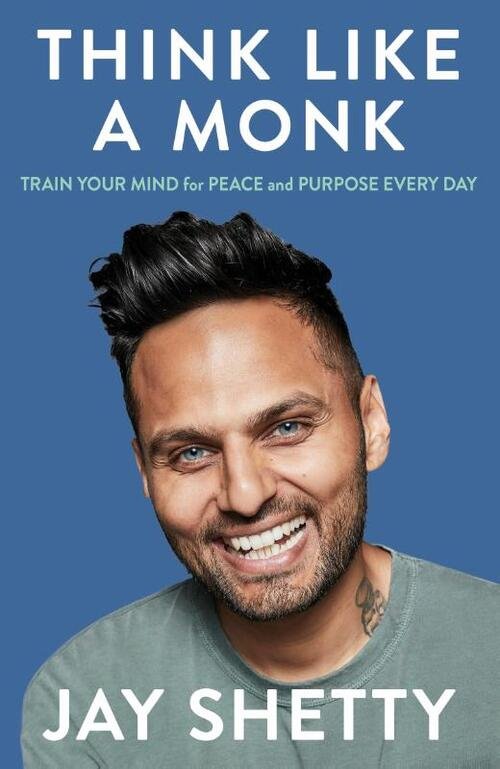
Think like a mois a self-help book that teaches how to find peace and purpose by applying monk wisdom to modern life. Drawing from his experience as a monk, Shetty shares lessons on letting go of negativity, discovering your true self, and living with intention.
He emphasizes mindfulness, gratitude, and service as paths to happiness. The book’s main message is that by training our minds and focusing on what truly matters, we can live calmer, more meaningful lives.
Focus on what you can control instead of what you can’t.
Serve others to find deeper meaning and satisfaction.
Create positive habits that align with your values.
Peace and happiness come from within, not from external success.
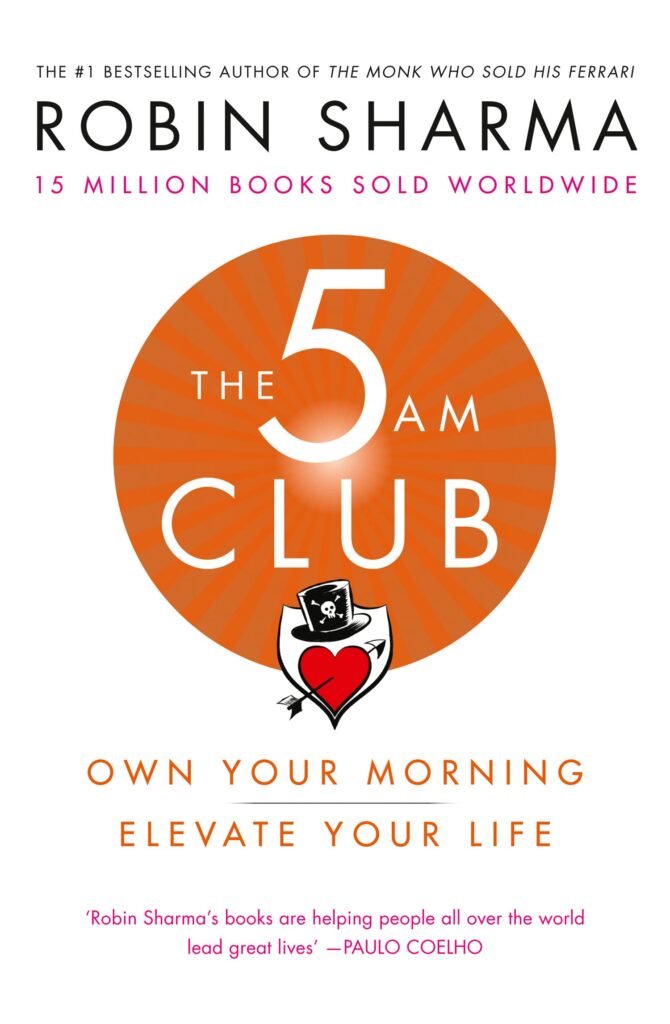
Waking up at 5:00 AM and using the first hour wisely can transform your life by improving your productivity, mindset, health, and overall success.
The 20/20/20 Formula (5:00–6:00 AM)
Move (5:00–5:20 AM): Exercise to activate your brain, reduce stress, and boost energy.
Reflect (5:20–5:40 AM): Meditate, journal, or plan your day to build inner peace and clarity.
Grow (5:40–6:00 AM): Read, study, or listen to inspiring content to develop your knowledge and mindset.
Principles:
"Own your morning. Elevate your life." – Early rising gives you control and momentum.
Build all four areas of self: Mindset, Heartset, Healthset, Soulset.
Habits take 66 days to install (split into 3 stages: destruction, installation, integration).
Avoid distractions, especially in the morning—guard your focus and attention.
True greatness comes from consistent, small daily wins.
Mastering your morning leads to mastering your day—and ultimately your life. The 5 AM habit is a powerful tool for anyone seeking personal growth, discipline, and peak performance.
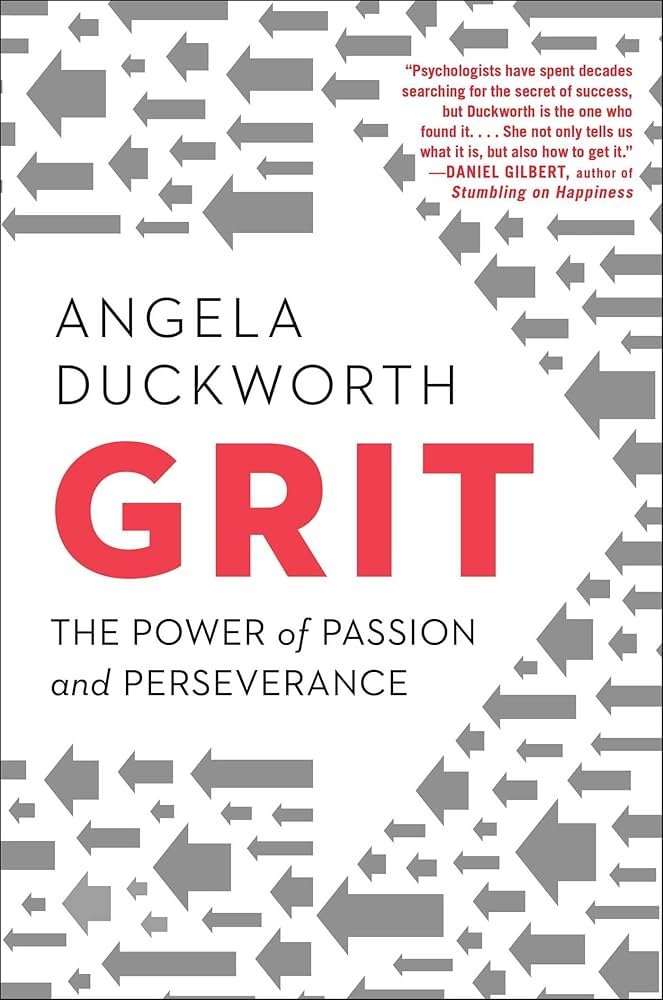
In Grit, psychologist Angela Duckworth explores what truly leads to success—and it's not just talent. Instead, she argues that grit, the combination of passion and perseverance over the long term, is a far more reliable predictor of achievement.
Through research, personal stories, and interviews with high performers—from athletes to teachers to business leaders—Duckworth shows that effort counts twice: once to build skill, and again to turn skill into achievement. She emphasizes the importance of a growth mindset, deliberate practice, purpose, and resilience.
Her core message: success comes not from natural ability, but from the willingness to stick with meaningful goals, even through failure and hardship. And importantly, grit can be learned and developed by anyone.
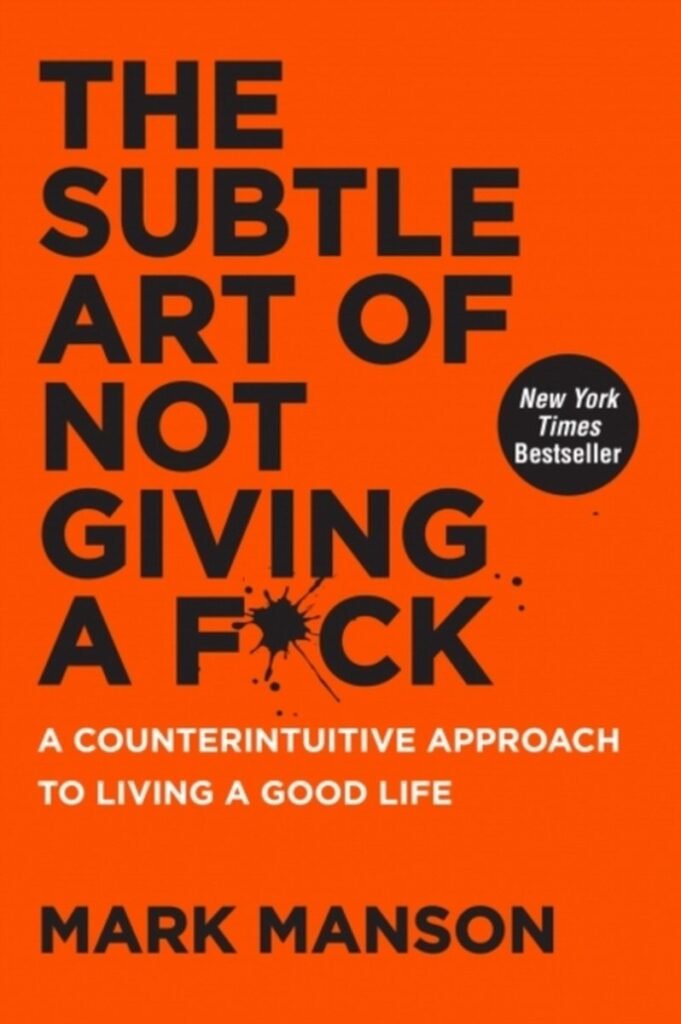
The Subtle Art of Not Giving a Fuck by Mark Manson is a no-nonsense self-help book that flips traditional positivity advice on its head. Instead of encouraging people to always stay positive or chase constant happiness, Manson argues that life is hard, and we all have a limited amount of energy and attention. The key to a good life is not giving a fuck about everything, but carefully choosing what really deserves your time, energy, and care. Manson encourages readers to accept their flaws, embrace failure, and stop chasing unrealistic goals of constant success or perfection. He believes that personal growth comes from dealing with tough situations, setting better values, and taking responsibility for your own choices. Pain, struggle, and loss are part of life, what matters is how you respond to them. At its core, the book promotes honesty, resilience, and focusing only on what truly matters to you, even if it’s uncomfortable or unpopular. Rather than avoiding problems, Manson says we should choose better problems and care deeply about solving those.
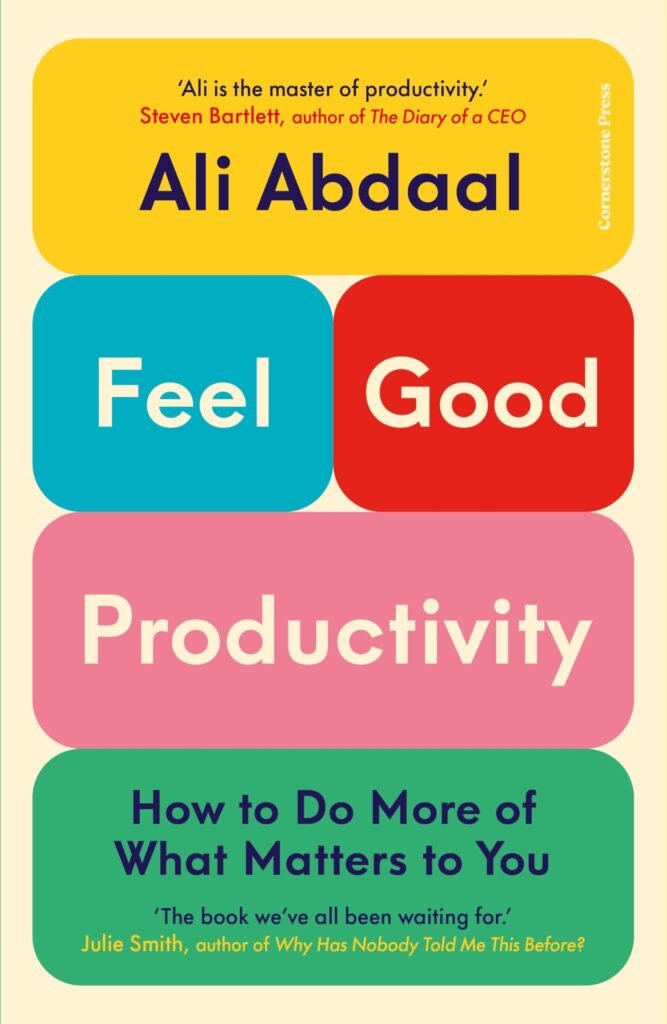
Feel-Good Productivity by Ali Abdaal argues that productivity doesn't have to come from stress, guilt, or constant hustle. Instead, when your work feels good—energising, meaningful, and even fun—you naturally become more motivated, consistent, and creative.
The book is built around three main pillars: Energise, Unblock, and Sustain. In the Energise section, Abdaal explains how positive emotions, playfulness, autonomy, and connection with others can increase motivation. In Unblock, he focuses on the causes of procrastination—like fear, uncertainty, or confusion—and shows how to move forward using small steps and clear, controllable goals (called NICE goals). The Sustain section helps you avoid burnout by aligning your work with your personal values, setting boundaries, and making space for rest and reflection.
Throughout the book, Abdaal shares practical tools backed by psychology and personal experience. The key message is simple: by making productivity feel good, you're far more likely to stick with it—and enjoy the process along the way.
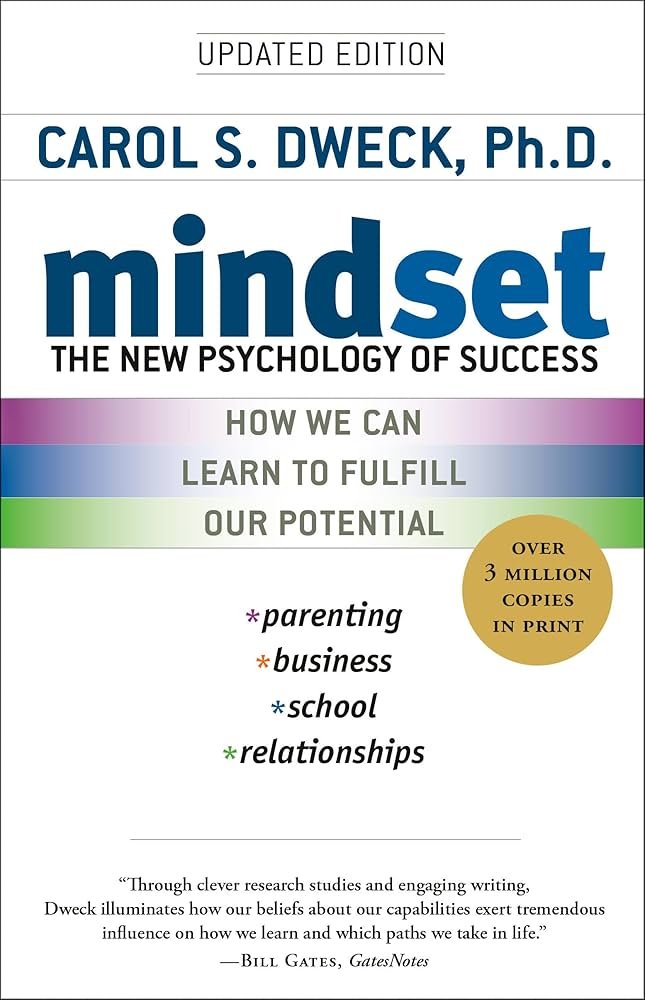
In Mindset, psychologist Carol Dweck explains that people can have two types of "mindsets": a fixed mindset and a growth mindset. People with a fixed mindset believe that their intelligence, talents, and abilities are static and cannot be changed. They avoid challenges, are afraid of making mistakes, and give up easily. People with a growth mindset, on the other hand, believe that abilities can be developed through effort, learning, and perseverance. They are open to feedback, see mistakes as learning opportunities, and keep trying even when things get tough. Dweck shows that a growth mindset leads to greater success in school, work, sports, and relationships. She emphasizes that everyone can change their mindset by consciously working on how they think about themselves and their development.
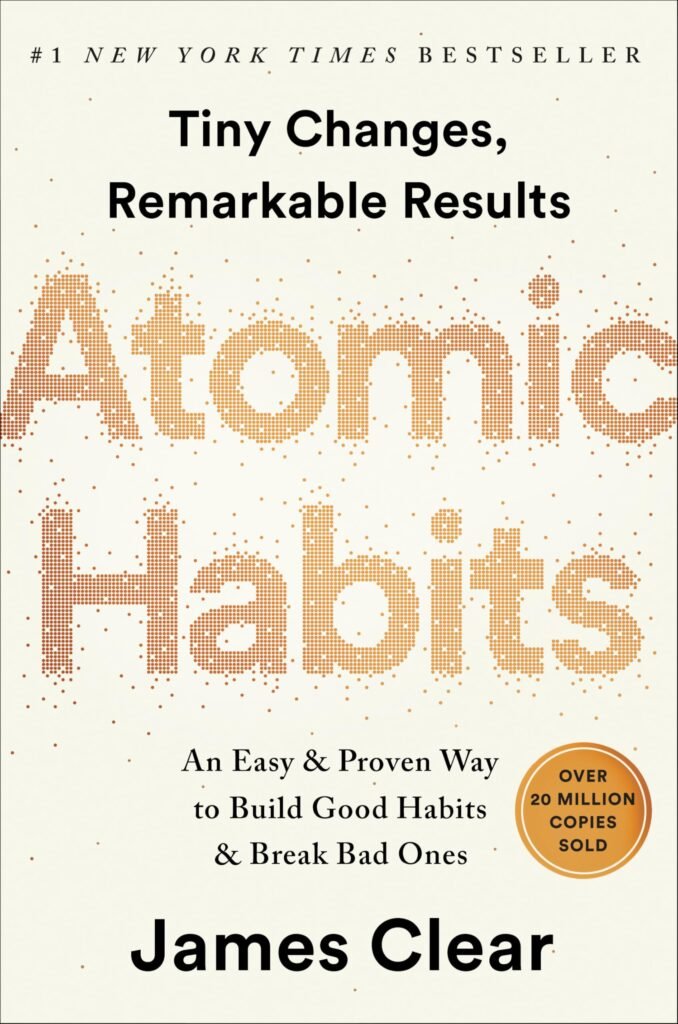
The go-to guide for forming good habits and breaking bad ones. An easy and proven way to build good habits and break bad ones. Big life changes don’t require massive action—just small, consistent improvements (atomic habits). Tiny changes, repeated daily, compound into remarkable results over time. Small habits, when repeated consistently, lead to significant life changes. Instead of focusing on big goals, focus on improving systems and routines every day.
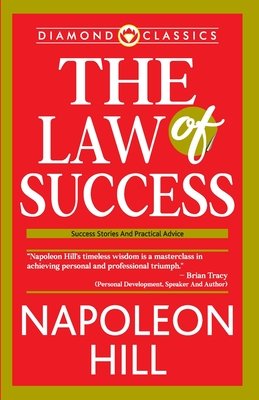
Napoleon Hill's The Law of Success, first published in 1928, is a powerful guide to achieving personal and professional success. Based on Hill's interviews with successful individuals like Andrew Carnegie and Henry Ford, the book presents 16 key principles that form a holistic approach to success. These principles cover everything from self-confidence and clear goals to collaboration and perseverance.
Key Lessons:
Master Mind Principle – Success thrives through collaboration with like-minded individuals.
Definite Chief Aim – Set clear, specific goals.
Self-Confidence – Believe in yourself to overcome obstacles.
Initiative and Leadership – Take action and lead with confidence.
Imagination – Use creativity to solve problems and innovate.
Enthusiasm – Stay passionate to inspire others and fuel your drive.
Self-Control – Master discipline to stay focused on your goals.
Cooperation – Work well with others to amplify success.
Learning from Failure – Use failure as a stepping stone to growth.
Hill’s principles focus on developing a positive mindset and disciplined habits, teaching that true success involves both personal growth and practical action. The Law of Success is timeless advice for anyone looking to unlock their potential and achieve greatness.

In The Untethered Soul: The Journey Beyond Yourself, Michael A. Singer explores how we can free ourselves from the mental and emotional patterns that limit our potential and inner peace. The book encourages readers to detach from their thoughts and emotions, recognizing that we are not defined by them. Instead, we are the silent observer of these inner experiences.
A key idea in the book is the “inner voice”—the constant stream of thoughts we often mistake for our true self. By stepping back and simply observing these thoughts without attachment, we can experience peace and clarity. Singer also emphasizes surrendering to life’s flow, accepting the present moment as it is, and letting go of the need to control or change things.
Throughout the book, Singer teaches the importance of releasing emotional baggage and practicing conscious awareness. This means becoming aware of our thoughts and feelings without being overwhelmed by them. By doing so, we can live more intentionally and experience true freedom.
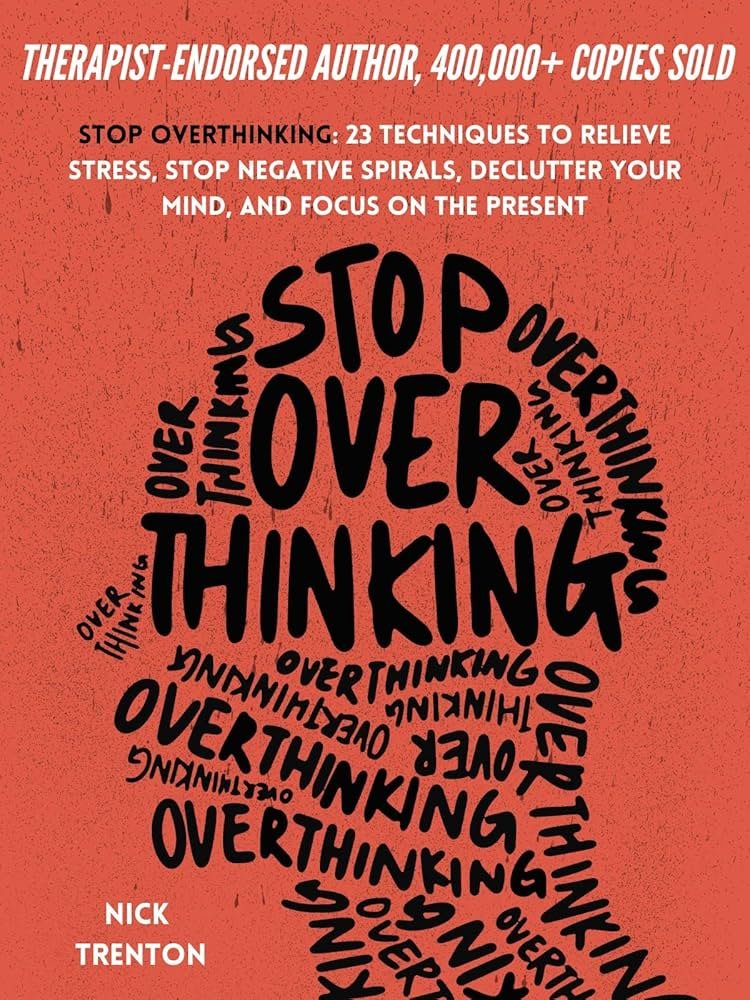
Stop Overthinking by Nick Trenton is a practical self-help guide designed to help readers overcome anxiety, stress, and the constant cycle of mental overanalysis. Trenton explains how overthinking can paralyze decision-making, fuel self-doubt, and drain emotional energy. Drawing on psychological insights, he offers straightforward techniques to calm the mind, including mindfulness, breathing exercises, journaling, and cognitive behavioral therapy (CBT) methods. He emphasizes the importance of becoming aware of harmful thought patterns and replacing them with healthier ones. The book encourages readers to take control of their inner dialogue, embrace the present moment, and reduce mental clutter. It's a simple yet effective toolkit for anyone seeking peace of mind and greater mental clarity in their daily life.
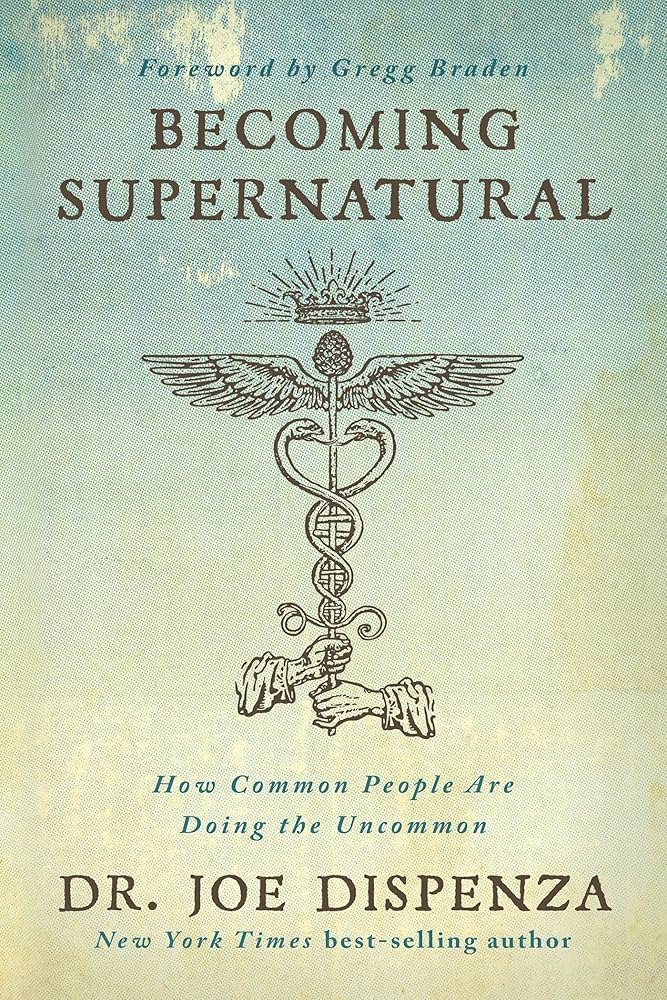
If you’ve ever wanted to tap into your full potential, Becoming Supernatural by Dr. Joe Dispenza is a game-changer. Blending science with spirituality, Dispenza reveals how we can transform our reality by harnessing the power of our thoughts, emotions, and energy.
Key Takeaways
The Power of the Present Moment
Dispenza encourages letting go of past and future to live fully in the present. This helps rewire the brain, break old patterns, and create new possibilities.
Meditation for Transformation
Regular meditation is a core practice in the book. By focusing on elevated emotions like gratitude and love, we can reprogram the subconscious and unlock healing and personal growth.
Energy and the Quantum Field
Our thoughts and emotions send out frequencies that interact with the quantum field. By raising our energy, we can influence reality and manifest our desires.
Healing the Body with the Mind
Dispenza shares inspiring stories of people who’ve healed from chronic conditions by changing their mental and emotional states, showing the mind's power to heal the body.
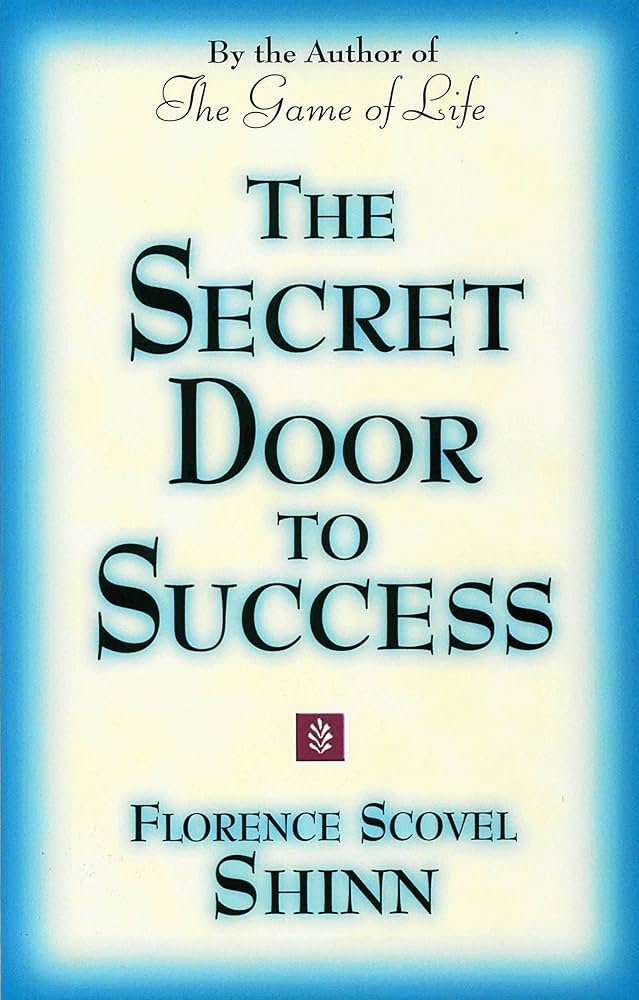
The Secret Door to Success by Florence Scovel Shinn is a timeless book that reveals how our mindset, beliefs, and attitudes play a crucial role in achieving success. Published in 1925, the book emphasizes the power of positive thinking, faith, and visualization as keys to unlocking opportunities.
The core message is simple: success starts within. Shinn believes that our thoughts and words shape our reality, so cultivating a positive attitude can open doors to personal and professional growth. She also highlights the importance of faith in oneself and a higher power, encouraging readers to trust that the universe will support them when they align with their goals.
Visualization and affirmations are powerful tools Shinn recommends, helping to manifest dreams into reality. She encourages readers to see obstacles as opportunities for growth and to live a life true to their purpose.
The Secret Door to Success is a spiritual guide to aligning your inner world with your outer goals. By changing your mindset and embracing challenges, you can unlock the success you’ve always desired.
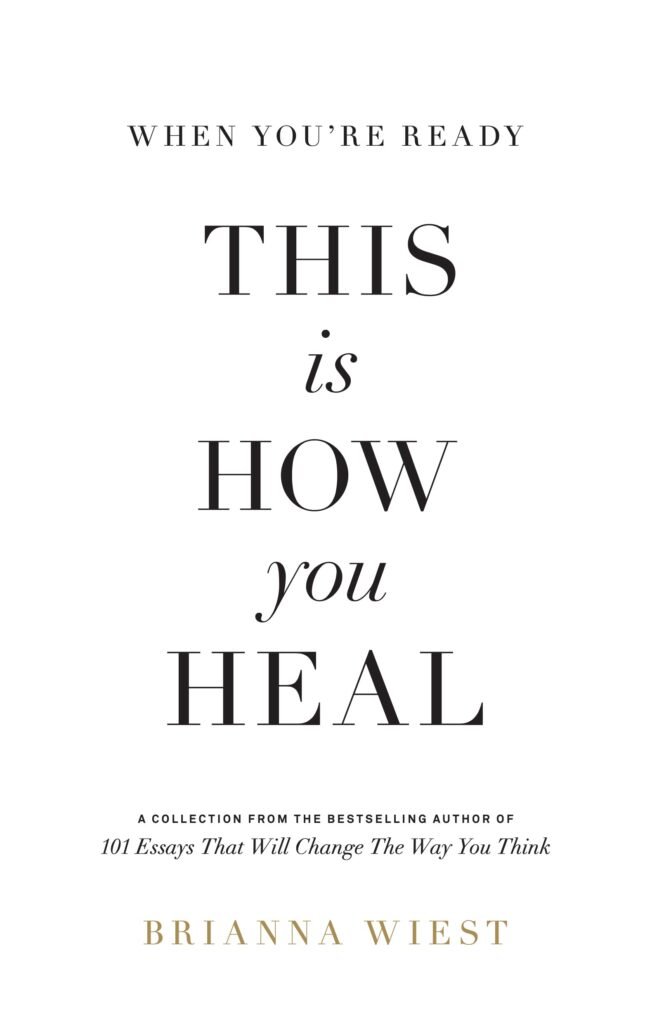
Healing is a personal journey that unfolds at your own pace. It’s not a quick fix but a continuous process that starts when you’re ready. Here’s a condensed guide to help you begin:
Acknowledge Your Pain: Recognize what you’re feeling without judgment. Healing starts with honesty about your emotions.
Create a Safe Space: Surround yourself with people and environments that make you feel secure and supported.
Be Compassionate with Yourself: Treat yourself with kindness. Healing takes time, so avoid self-criticism.
Embrace Change: Healing often requires growth, which can be uncomfortable. Embrace the discomfort as part of your transformation.
Seek Support: Don’t hesitate to ask for help, whether from loved ones or professionals. Healing is not a solo journey.
Let Go of Control: Focus on what you can control and surrender to the process. Healing takes its own time.
Celebrate Small Wins: Every step forward counts. Celebrate the small victories along the way.
Find Meaning: Reflect on how your experiences have shaped you and what you’ve learned from them.
Healing takes time, patience, and self-compassion. Trust that when you're ready, healing is already in motion.
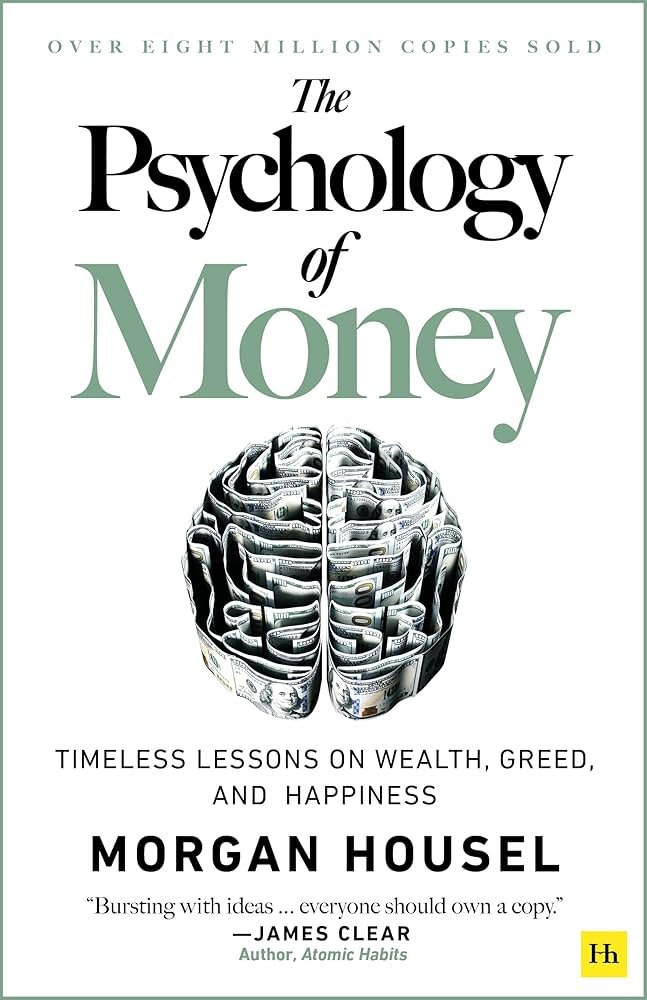
The Psychology of Money by Morgan Housel explores how our emotions, biases, and behaviors shape our financial decisions. Rather than focusing solely on technical money management, Housel delves into the deeper psychological aspects that influence how we view and handle wealth.
Key Takeaways:
True Wealth is Invisible: Wealth isn’t about flashy possessions, but about what you save and invest.
Compounding Power: Small, consistent efforts over time lead to significant results—whether in money or habits.
Luck and Risk: Success often depends on unpredictable factors like luck, and we can’t control every outcome.
Patience is Key: Building wealth takes time, discipline, and a long-term perspective.
Emotional Control: Financial success is about managing emotions—staying calm in the face of uncertainty or market fluctuations.
Ultimately, The Psychology of Money teaches that wealth isn’t just about numbers—it’s about understanding your emotions and habits around money. By shifting your mindset and focusing on long-term thinking, you can make smarter financial choices.
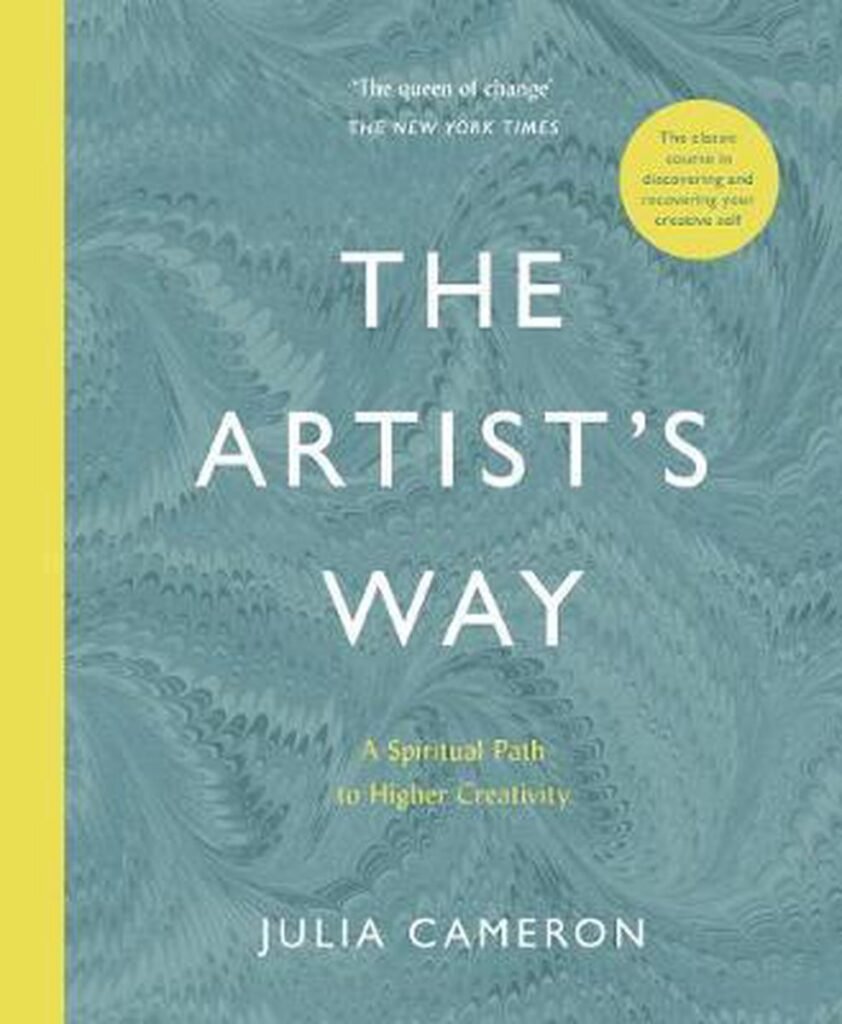
The Artist's Way by Julia Cameron is a transformative guide for anyone looking to reconnect with their creativity. Whether you're a professional artist or simply seeking more inspiration in your life, this 12-week course offers practical tools to break through creative blocks and rediscover your creative potential.
At its core are two powerful practices: Morning Pages and Artist Dates. Morning Pages involve writing three pages each morning to clear your mind, while Artist Dates are solo outings that nurture your creative spirit and inspire new ideas. These tools help quiet your inner critic and encourage a playful, non-judgmental approach to creativity.
Cameron also emphasizes the importance of self-care and compassion, encouraging you to treat yourself with kindness as you explore your creativity. By confronting negative beliefs and embracing a joyful, experimental approach to art, you can unlock a deeper sense of fulfillment and inspiration in your life.
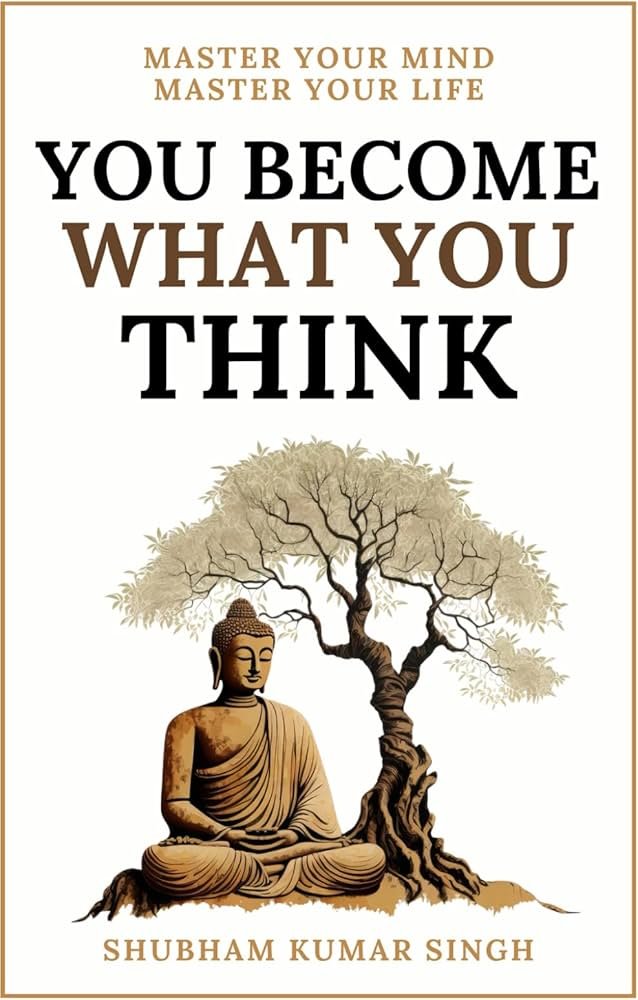
Master Your Mind, Master Your Life by Shubham Kumar Singh is an inspiring guide to transforming your life by changing your thoughts. The core message is simple yet powerful: You become what you think. Singh emphasizes that our thoughts shape our reality, and by mastering our minds, we can unlock our full potential.
The book covers key themes like the power of positive thinking, mindfulness, and overcoming limiting beliefs. Singh explains how cultivating a positive mindset and practicing mindfulness can reduce stress, improve focus, and enhance overall well-being. He also provides practical strategies, such as visualization, affirmations, and meditation, to help readers shift their mindset and create lasting change.
Singh also explores the Law of Attraction, encouraging readers to focus on their desires to attract positive energy into their lives. Throughout the book, readers are offered actionable steps for personal growth and transformation, making the concepts easy to implement.
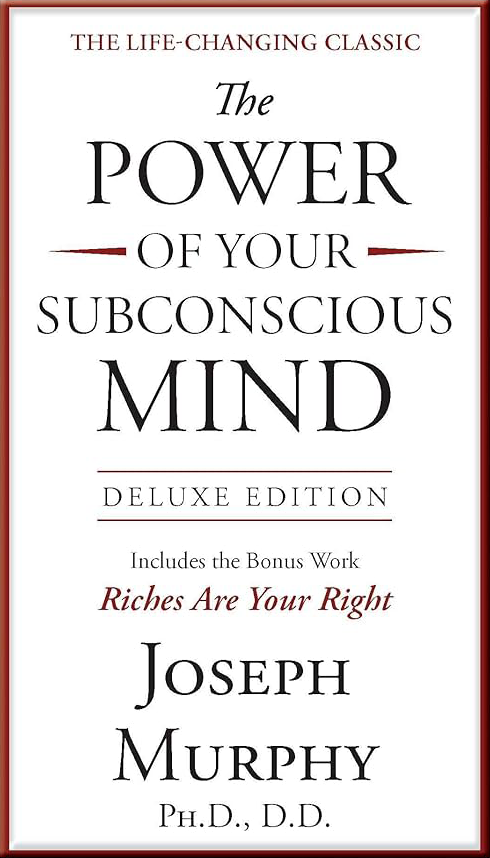
Dr. Joseph Murphy's The Power of Your Subconscious Mind reveals the incredible potential of our subconscious to shape our lives. First published in 1963, the book emphasizes that our thoughts and beliefs, whether positive or negative, influence our reality. The subconscious mind doesn’t judge; it simply manifests what we feed it.
Murphy introduces key concepts like the Law of Attraction, where focusing on positive thoughts helps us attract success, health, and happiness. He also shares practical techniques for reprogramming the subconscious, such as affirmations, visualization, and autosuggestion, which help reinforce empowering beliefs.
The book also highlights how the subconscious affects not just success but health and personal growth. By replacing fear and limiting beliefs with positive thoughts, you can improve your life and well-being.
Ultimately, Murphy’s message is clear: the power to transform your life lies within your mind. With consistent practice and belief, you can unlock your potential and manifest the life you desire.
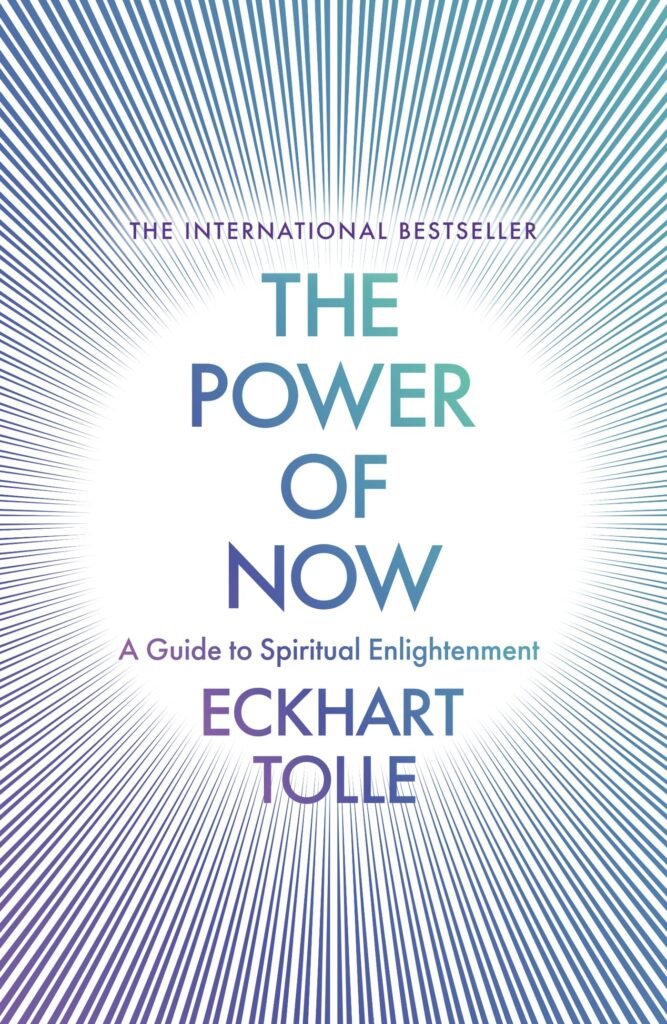
The Power of Now: Embracing the Present Moment
In today’s fast-paced world, it’s easy to get caught up in the past or worry about the future. But as Eckhart Tolle’s The Power of Now teaches, true peace and fulfillment come from focusing on the present moment.
The mind often distracts us with regrets from the past or fears about the future. This takes us away from the only time we can truly experience life—now. By living in the present, we find clarity, reduce stress, and cultivate a deeper sense of gratitude and connection.
The Benefits of Living in the Now
Reduced Stress & Anxiety: Letting go of past regrets and future worries brings calm.
Increased Focus & Clarity: Being present helps us concentrate and achieve more.
Deeper Relationships: Fully engaging with others strengthens connections.
Gratitude: We begin to appreciate the small joys in life.
How to Live in the Now
Mindfulness Meditation: Focus on your breath to stay present.
Deep Breathing: Take a few deep breaths to center yourself.
Acceptance: Let go of resistance and accept things as they are.
Gratitude: Practice appreciating the present moment.
Release the Ego: Let go of attachments to external achievements.
Living in the now doesn’t just change your mindset—it transforms your entire experience. By embracing the present, we open the door to peace, joy, and fulfillment.
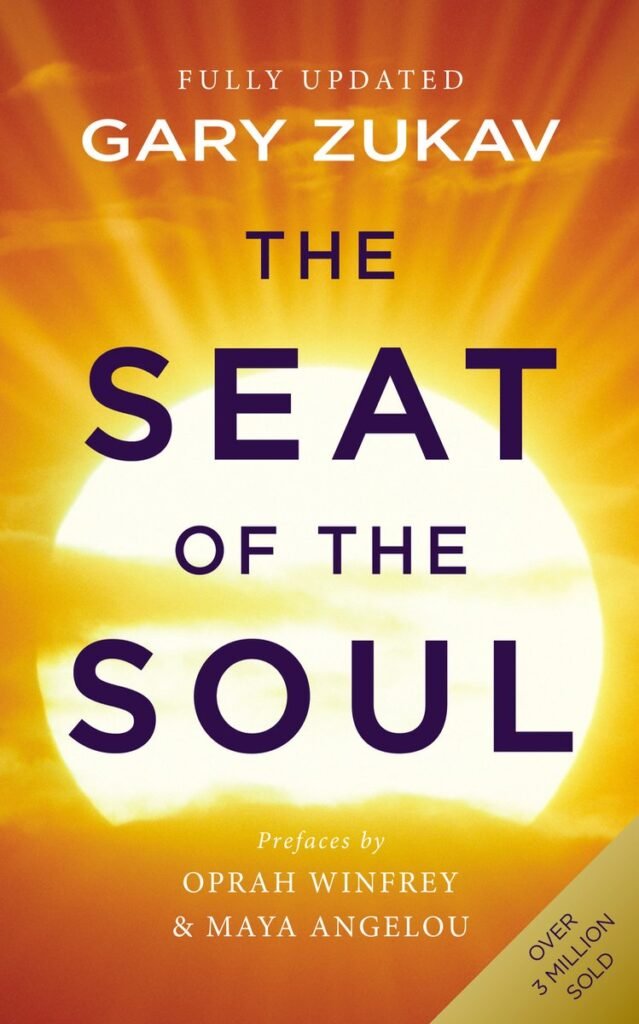
The Seat of the Soul: A Journey to Spiritual
Transformation
The Seat of the Soul by Gary Zukav offers a powerful exploration of the soul, consciousness, and personal growth. Zukav emphasizes the importance of connecting with our inner essence—the soul—and making choices based on love, authenticity, and wisdom, rather than fear or ego.
Central to the book is the idea that true personal power comes from within, through alignment with the soul’s purpose. Zukav invites readers to shift from materialistic pursuits to spiritual consciousness, encouraging a deeper connection with the universe and all living beings.
The book highlights that life is a journey of spiritual evolution, where every experience is an opportunity for growth. By embracing our soul’s wisdom and living authentically, we can contribute to both our personal transformation and the collective evolution of humanity.
In essence, The Seat of the Soul is a guide to living a more conscious, fulfilling, and spiritually aligned life. It calls us to awaken to the power within, leading to greater happiness and connection to the world around us.

In The Mountain Is You, Brianna Wiest presents the powerful idea that the biggest obstacles we face aren't external, but internal. The "mountain" is a metaphor for our fears, self-doubt, and unresolved struggles, and climbing it is the key to personal transformation.
The writer encourages us to shift our perspective, seeing these challenges not as roadblocks but as necessary parts of our growth. Rather than avoiding discomfort or fear, we should embrace it, as it often points us toward the changes we need to make.
Our past patterns and limiting beliefs shape how we approach life, but healing requires addressing these head-on. Self-awareness and self-compassion are crucial—it's not about rushing to the top of the mountain, but learning from each step along the way.
Ultimately, the mountain represents our journey of personal evolution. Every challenge we face is an opportunity to grow, and by facing them with courage and vulnerability, we unlock our fullest potential. The mountain is not in the way; it is the way.
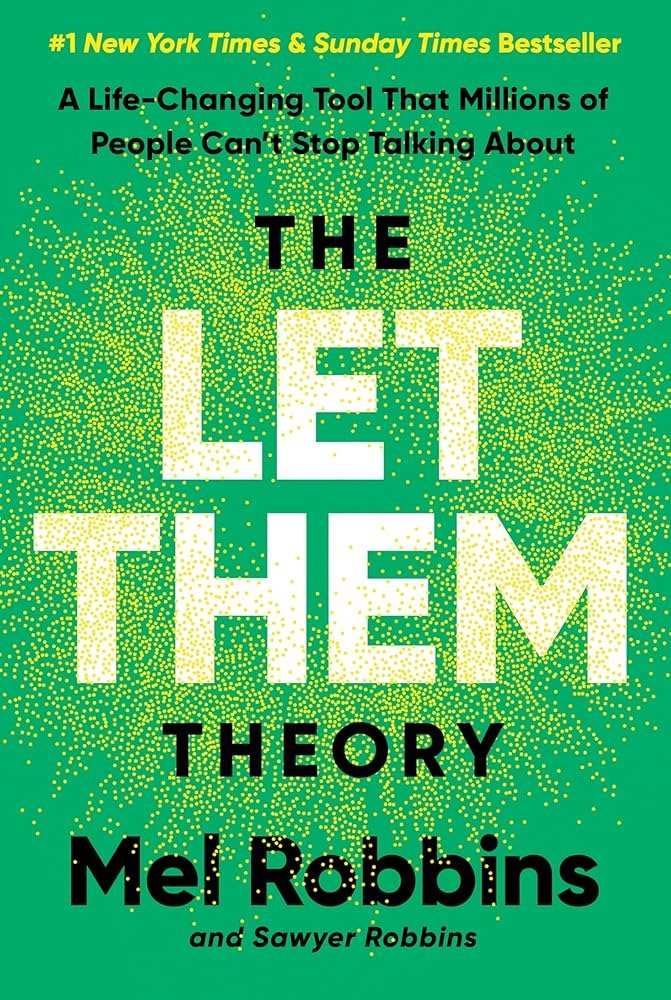
The "Let Them" Theory: Empowering Growth and Leadership
The "Let Them Theory" is a powerful approach that encourages stepping back and empowering others to take control of their own journey. Instead of micromanaging, it’s about trusting people to make decisions, learn from their mistakes, and grow. This theory applies to leadership, parenting, mentorship, and personal development, fostering independence and resilience.
Why It Works
Builds Confidence: Giving people the freedom to make choices boosts their self-assurance.
Fosters Growth: Learning through experience, including mistakes, is key to growth.
Encourages Innovation: Autonomy leads to fresh ideas and problem-solving.
Promotes Resilience: Facing challenges independently teaches perseverance.
Increases Responsibility: People take ownership when trusted with important tasks.
How to Implement It
Trust People: Whether at work or home, trust is essential to empower others.
Give Space: Let others make decisions and solve problems on their own.
Support, Don’t Control: Guide through questions, not answers.
Embrace Failure: Use mistakes as learning opportunities.
Celebrate Growth: Focus on the process, not just the result.

This is a quick guide to success by Florence Scovel Shinn offers a practical and spiritual approach to living a fulfilling life. The book’s timeless message is clear: life doesn’t have to be a struggle. By aligning our thoughts, words, and actions with spiritual laws, we can create the reality we desire.
Key Takeaways:
1. Thoughts Create Reality: Shinn believes that our thoughts shape our lives. Positive thinking attracts success, while negativity attracts failure. Affirmations help change our mindset.
2. The Power of Words: Words carry energy. Speaking positively and affirming what we desire sends the right signals to the universe.
3. Visualization: Visualizing your desired life is key to manifesting it. By vividly imagining your success, you create a mental blueprint that the universe responds to.
4. Faith and Expectancy: Trusting in a higher power and expecting good things to happen draws opportunities your way. Faith is a magnet for abundance.
5. Overcome Fear and Doubt: Fear is an illusion. Confronting it with positivity and faith helps you move forward with confidence.
In today’s world, Shinn’s principles are as relevant as ever. By using affirmations, visualization, and positive thinking, we can create the life we want. The game of life is waiting—play it with purpose, and success will follow.

David Goggins' memoir, Can't Hurt Me, is a gripping tale of resilience, mental toughness, and overcoming extreme challenges. From a childhood filled with abuse and discrimination to becoming a Navy SEAL and ultra-endurance athlete, Goggins shares his journey of pushing through pain and adversity. Central to the book is the idea that our minds, not our bodies, are the main obstacle to reaching our potential. Goggins introduces his concept of the "40% Rule," explaining that when you think you've hit your limit, you're only at 40% of your true capabilities. Through personal stories of overcoming physical and mental struggles, Goggins teaches readers how to break through their barriers and embrace discomfort as a tool for growth. Can't Hurt Me isn’t just about physical strength—it’s about mental resilience. Key lessons include taking ownership of your life, pushing through pain, and consistently stepping outside your comfort zone. Goggins shows that true greatness comes from developing mental toughness and refusing to quit, no matter how tough life gets. For anyone looking to challenge their limits and develop a stronger mindset, Can't Hurt Me offers powerful lessons on resilience, perseverance, and self-discipline. It’s a call to embrace discomfort and unlock your full potential.

Understanding and Healing Inherited Family Trauma
The idea that “it didn’t start with you” is both humbling and empowering. Many of us struggle with issues like anxiety, depression, or relationship difficulties and assume these challenges are solely ours. However, this book acknowledges that we are not isolated beings but are part of a much larger narrative—one that includes our ancestors, their struggles, and their survival. Traumatic experiences, such as war, poverty, or emotional neglect, can affect us in ways we might not even realize. By confronting inherited trauma, we have the chance to break free from the emotional burdens of the past and create healthier, more fulfilling lives. Healing from inherited trauma is not a simple process, but it’s a necessary one if we hope to build a more conscious, compassionate future for ourselves and those who come after us. This book is a reminder that the journey toward healing often begins with understanding where we come from and how the past shapes us, even when we don’t realize it. And through that understanding, we can begin to heal, grow, and break the cycles that no longer serve us.
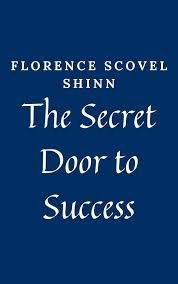
The Secret Door to Success by Florence Scovel Shinn offers timeless wisdom on how to achieve success in all areas of life. Written in 1929, the book highlights the power of positive thinking, faith, and visualization in shaping our reality. Shinn emphasizes that success begins with the mind—by focusing on positive thoughts and affirmations, we can attract success into our lives.
Key takeaways from the book include:
The Power of Thought: Our thoughts create our reality. By cultivating positive thinking, we manifest success.
Faith: Belief in ourselves and the universe’s support is essential for success.
Overcoming Fear: Fear is an obstacle. Through courage and affirmation, we can conquer doubt.
Visualization: Imagining success as if it’s already here helps bring it to life.
Gratitude: Appreciating what you have attracts more abundance.
Shinn’s teachings are simple but profound: change your mindset, take bold actions, and success will follow. Nearly a century later, her principles still offer powerful guidance for anyone ready to unlock their potential and step into the life they desire.

Being born rich is more than just a financial status—it’s a unique set of experiences that shape who a person becomes. The journey of growing up in wealth has its own set of joys, pressures, challenges, and opportunities. While some may view it as an easy life, the complexities of being born rich are real. Ultimately, wealth is just one part of the story—it’s the way individuals choose to navigate their circumstances and use their resources that truly defines them.Born rich or not, everyone must find their way in the world, dealing with the responsibilities that come with their unique position. Whether born into wealth or working to build it, the most important question is: how will we use our resources to make a positive impact on ourselves, others, and the world around us? Those born into wealth have a unique opportunity to make a positive impact through philanthropy, business, and social causes
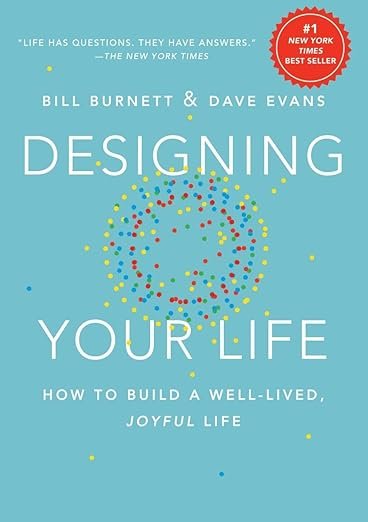
In Designing Your Life, Bill Burnett and Dave Evans offer a powerful toolkit for anyone who wants to live intentionally, embrace experimentation, and design a life that aligns with their values and aspirations. The book provides a practical, creative, and flexible approach to personal growth that encourages curiosity, exploration, and continual improvement. Rather than feeling stuck or pressured to have all the answers, you can adopt the mindset of a designer—viewing your life as a work in progress that’s constantly evolving. If you’re looking for a way to live with more purpose and intentionality, the book teaches that life is an ongoing design process, and by staying flexible, curious, and intentional, we can create a life that feels both purposeful and joyful. Designing Your Life offers the inspiration and framework to help you take control of your journey, one prototype at a time.
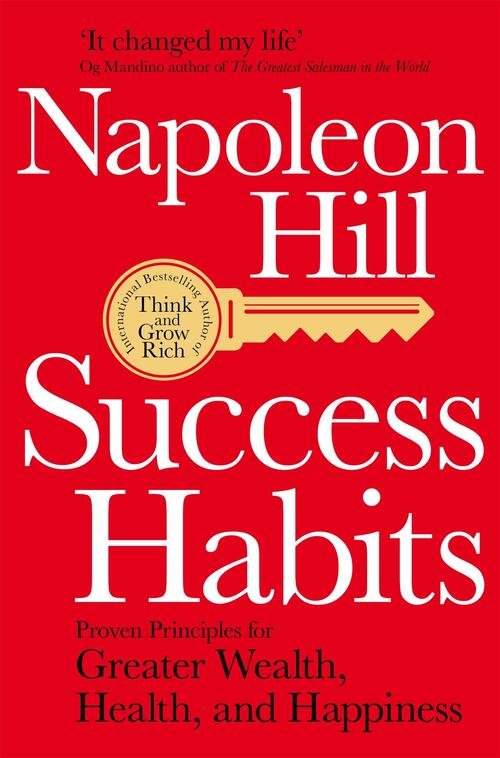
Napoleon Hill's "Success Habits" serve as a timeless guide for anyone looking to unlock their potential and achieve their dreams. To integrate these success habits into your life. Start by identifying one or two habits that resonate most with you. By adopting these habits and cultivating a mindset focused on success, you can create a fulfilling and prosperous life. Set specific, actionable goals regarding these habits and make a plan to implement them. For example, if you choose to focus on self-discipline, you can create a daily routine that prioritizes your most important tasks. Additionally, consider tracking your progress and reflecting on your experiences. This practice can help you stay accountable and recognize the growth you achieve over time. Remember, success is not just about reaching a destination; it's about the journey and the habits you develop along the way. Embrace these principles and watch them transform your life!
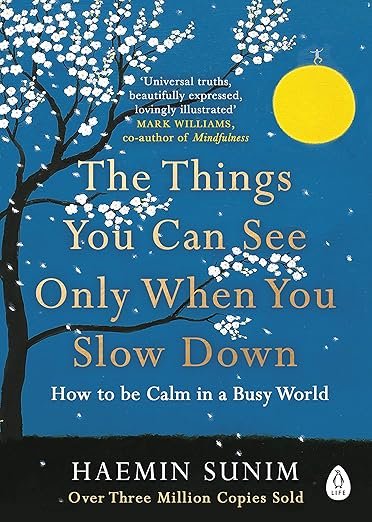
In a society that often celebrates speed and productivity, Haemin Sunim's The Things You Can See Only When You Slow Down is a timely reminder that slowing down is not a sign of weakness, but a path to greater clarity, peace, and happiness. The world moves fast, but that doesn't mean we have to. In this timely guide to mindfulness, Haemin Sunim, a Buddhist monk born in Korea and educated in the United States, offers advice on everything from handling setbacks to dealing with rest and relationships, in a beautiful book combining his teachings with calming full-colour illustrations. Through mindfulness, self-compassion, and the simple act of being present, we can uncover the beauty and meaning that is always around us, waiting to be noticed. Hugely popular in Korea, Haemin Sunim is a Zen meditation teacher whose teachings transcend religion, borders and ages. If you're feeling overwhelmed or disconnected, this book provides the perfect antidote—a gentle nudge to slow down, breathe, and appreciate the present moment. After all, as Sunim so beautifully puts it, "The things you can see only when you slow down are the things that make life truly worth living."
